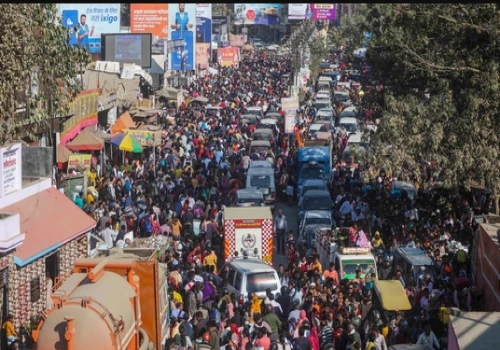
The Union Cabinet approved the formation of the 8th Pay Commission to revise the salaries of central government employees and the allowances of pensioners. The decision was made during a Cabinet meeting chaired by Prime Minister Narendra Modi. Union Minister Ashwini Vaishnaw confirmed the approval and stated that the chairman and two members of the Commission will be appointed soon.
The Commission will hold consultations with central and state governments, as well as other relevant stakeholders, to finalize its recommendations. The establishment of the 8th Pay Commission comes as a step toward addressing the salary structure and pension benefits for millions of government employees and pensioners across India.
What is a Pay Commission?
A pay commission is established by the central government once every decade to evaluate and recommend changes to the salary structure of its employees. It is tasked with revising the salary, allowances, and pension payments for central government workers. The Pay Commission also defines its term of reference (ToR), which outlines the primary focus and guidelines for reviewing the pay scale.
In the past, pay commissions have played a crucial role in addressing the financial well-being of government employees, ensuring their salaries align with inflation and changing economic conditions.
The Need for the 8th Pay Commission
With over 49 lakh central government employees and nearly 65 lakh pensioners, the need to update the existing salary structure is pressing. The last Pay Commission, the 7th Pay Commission, was set up in 2016, and its term will end in 2026. The 8th Pay Commission aims to adjust the salaries and pensions to keep pace with rising living costs and ensure a fair compensation system for government workers.
Who is Covered by Pay Commissions?
The 7th Pay Commission primarily covers central government employees, including those in civil services and those receiving salaries from the Consolidated Fund of India. This includes employees working in ministries and departments of the central government. However, employees in public sector undertakings (PSUs), autonomous bodies, and gramin dak sevaks are not covered under the commission. For instance, employees working in organizations like Coal India fall outside the purview of the 7th Pay Commission.
PSU employees receive pay based on separate scales set by the specific public sector organization they are employed with.
Key Changes Under the 7th Pay Commission
The 7th Pay Commission introduced several significant changes in the salary structure. One of the most notable changes was the revision of the fitment factor, which is a multiplier used to calculate the salaries and pensions of employees. Although employee unions demanded a higher fitment factor of 3.68, the government settled on a factor of 2.57.
As a result, the minimum basic pay for central government employees was raised to Rs18,000 per month, a significant increase from Rs7,000 under the 6th Pay Commission. Similarly, the minimum pension for retirees also increased from Rs3,500 to Rs9,000 per month.
The maximum salary for government employees under the 7th Pay Commission was set at Rs2,50,000, and the maximum pension was Rs1,25,000. These changes aimed to provide fairer compensation, especially for those at the lower end of the pay scale.
Looking Ahead: The 8th Pay Commission
The establishment of the 8th Pay Commission signals the government's intent to continue revising the salary and pension structures to meet the needs of its employees. With inflation and living costs on the rise, the upcoming Commission is expected to focus on adjusting the salary structures to ensure a sustainable and fair system for all central government employees and pensioners. The Commission's findings and recommendations will likely play a crucial role in shaping the financial well-being of government workers in the coming years.

_500_x_350.webp)
 (1)_500_x_350.webp)







